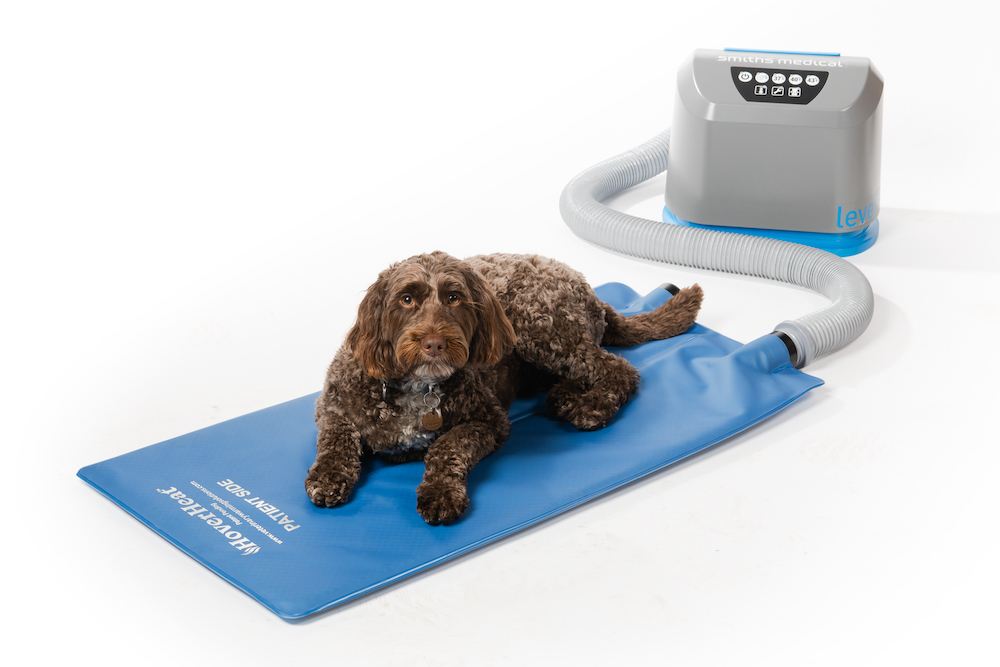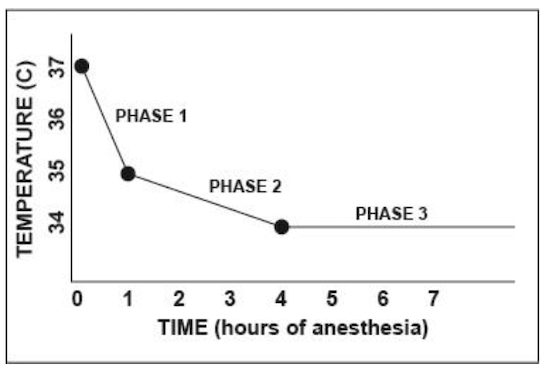Warm Up to Hypothermia Prevention
News

Four Mechanisms Heat Loss
- Radiation – the Number 1 cause of heat loss in the Operating Room (for example the transfer of body heat in the form of infrared radiant energy).
- Convection - loss of body heat to the ambient cooler air.
- Conduction - direct flow of body heat to a cooler supporting surface.
- Evaporation – warmed body moisture carries with it body heat upon evaporation.
Heat loss upon induction of anesthesia
- Immediate vasodilation of blood vessels in the periphery – skin, legs, tail
- Shunting or transfer of warmer blood from the core to the colder periphery
- Patient becomes a heat radiator
Three phases of hypothermia during general anesthesia (refer to diagram)
Phase 1
- Rapid decrease in body temperature in the first hour (starts upon induction)
- Due to the redistribution of blood flow to the periphery
- ****81 Percent of Heat Loss That Will Occur****
Phase 2
- Clow decline of body temperature in the next 2 to 4 hours
- Heat loss exceeds metabolic heat production by 20 to 40 percent
Phase 3
- Core temperature stability
- Metabolic heat production equals heat loss

Preoperative Warming
- 81 Percent of heat loss occurs in the first hour after anesthetic induction
- ****Most Important Time to Start Active Warming and Heat Retention****
****Minimize delay between pre-op and intra-op warming. For every minute of delay, the likelihood of a drop in core body temperature is increased by 5 percent ****
Intraoperative Warming
- Use active warming on as large a patient surface area as possible
- Implement measures to retain body heat
- Minimize time from pre-op to intra-op warming
Postoperative Warming
- Continue active warming and heat retention until the patient is fully awake
TAKEAWAY – Start warming pre-op immediately upon anesthesia induction and minimize the delay between pre-op and intra-op warming
For a complete Veterinary webinar on Hypothermia go to:

